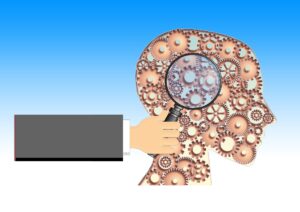guest post by Marina Lisjonok MSW, E-CYT, RRT
I first came across Rapid Resolution Therapy (RRT) in the spring of 2018, when I was looking for an effective approach to resolving emotional trauma. I remember my first Rapid Resolution Therapy training, where I got to see the video of Dr. Jon Connelly doing a session with a firefighter, who was a 9/11 first responder.
The firefighter was digging the remains from the building debris with his bare hands for weeks, trying to recover survivors. This tragic event left him with severe health and mental issues that resulted in disabilities. He suffered from nightmares, hypervigilance, depression, anxiety, panic attacks, and other PTSD symptoms. Some of his colleagues died during the rescue, so this man also suffered from a tremendous amount of guilt for surviving, which was exacerbated for him by being acknowledged and rewarded for his bravery and sacrifice, and receiving a life-long pension.
Within one session Dr. Connelly relieved him of all the PTSD symptoms that he suffered from for years. I was stunned when I saw this incredible shift and at that moment, I knew that I wanted to learn this process. I should also mention that before coming across RRT, I was feeling pretty burnt out from working as a clinical therapist. I didn’t feel that I was making that much difference for my clients by just using traditional talk therapy and mindfulness techniques. Seeing what RRT sessions could do for someone inspired me and rekindled my enthusiasm. Now I love my job more than ever after working as a clinical therapist for nearly ten years and being in the mental health field for over twenty.
Rapid Resolution Therapy Practitioners
Rapid Resolution Therapy is a complex process and requires a lot of training to become competent in the method. After completing the fundamental training (40-60 hours), one can qualify to become an RRT member. Members have access to online learning materials, training sessions, and the RRT community. But to become a certified RRT practitioner or facilitator, 250 hours of training are required. After that you can apply for an RRT therapist certification which involves an examination and evaluation process.
Dr. Connelly constantly refines and reinvents the RRT process. Therefore, even with 700 hours of training, I continue to train. I feel that during every training session I am a witness to a genius and pick up on something new. Just by participating in training sessions and listening to Dr. Connelly’s perspective or being coached by him directly, I am chipping away at my own mental hang-ups and finding renewed peace of mind and contentment.
I also have had some amazing RRT experiences myself as an RRT participant. Each time I have been amazed by my mind no longer being able to bring up the initial disturbing emotion or a thought pattern. It felt like I was drawing a blank. I also had moments where it felt like my mind was literally recalibrating and reorganizing information. One of these experiences was four years ago, when Dr. Connelly did a session with me in front of a large group of trainees. The RRT session relieved me from nightmares that I had suffered from for years, where someone was running after me with the intention to attack. I haven’t had a single nightmare since then, I sleep soundly and go to bed with ease.
Related Reading: How PTSD Can Be Treated By Rapid Resolution Therapy and Yoga
What is Rapid Resolution Therapy Used For?
So, what can RRT address? Almost anything that causes mental preoccupation, emotional disturbance, or any form of “stuckness” are good targets for RRT. Some examples are:
- Sexual trauma
- PTSD
- childhood abuse
- worry
- anxiety
- panic attacks
- phobias
- heartaches
- grief
- nightmares
- depression
- suicidal ideation
- low self-esteem
- loss of purpose and life transition
- anger
- intimacy issues
Related Reading: How to Deal with Unresolved Grief
Concerns About Rapid Resolution Therapy
I am often asked by a potential participant if it would be useful to take a day off for self-care on the day of the session, as thinking and talking about a traumatic event might surface difficult emotions. Dr. Connelly does not believe that one needs to feel worse in order to feel better, thus, the RRT process is intended to produce immediate relief from symptoms and resolve an issue within one session. Traditionally an RRT session would not be limited by time. Instead, it would take as long as needed for the mind to be cleared. In the private practice setting, I’ve adapted to conduct a series of one-hour sessions, where we slow down and address one thing at a time or revisit some areas if needed.
Another concern might be the necessity to answer thousands of questions during an initial session or to revisit triggering memories and describe them in detail, which might cause flashbacks. With the intention to avoid reliving traumatic events, an RRT therapist would only ask for a headline or only enough information to really get how it’s been for a participant in order to create a shift. Once the concern about the emotional disturbance or mental preoccupation has been received and understood by an RRT therapist, he/she takes the lead and guides a participant through different processes until the intention for the session is met. We believe that it is an RRT facilitator’s job to create a shift for the participant, not a participant’s job to work on themselves, just like a dentist would not hand a drill to a patient but would fix a problem him/herself. So, if a participant does not feel any shift after having gone through the process, it would be due to an RRT facilitator’s lack of skillfulness. We also admit that we do not have the key to every door.
What Happens During Rapid Resolution Therapy?
The RRT strategies are designed to work on conscious and unconscious levels. To create a shift in the conscious mind, an RRT practitioner offers to look through a different lens or perspective, looking through which would give more power, tells fun stories, and utilizes humor. Since all our troubled emotions and thoughts are generated by the unconscious mind, RRT is looking to create a shift there by guiding a participant through fun sensory experiences: breath, symbols, visualization, and imagination. For example, if general anxiety or social anxiety is being addressed, instead of asking participants to bring themselves into their happy place, we guide them through funny visual exercises, while facing their triggers in a non-threatening way. After doing this, their nervous system no longer reads a threat.
Rapid Resolution Therapy is a complex, innovative process that has a high success rate. As an RRT practitioner, I am interested in ongoing learning and refining my skills to increase the success rate. It brings me so much joy to see a participant unburdened and relieved at the end of our meeting and going forward.
Additional Resources
You can get more information about RRT from the official website where you can find testimonials of people who have gone through the process, learn about training opportunities, locate an RRT facilitator in your area, and utilize free resources.
Dr. Jon Connelly also offers online “Solutions” sessions on Monday nights, where people from different parts of the world log in and address something personal. You can learn more about these sessions and register to participate at https://www.rapidresolutiontherapy.com/solutions. It is free of charge and can give you a glimpse of the RRT magic. You can just stay and observe or raise your hand and participate. In addition, I recommend two books by Dr. Jon Connelly:
In addition to RRT, therapists at Life Care Wellness are trained in a variety of other modalities such as Somatic Experiencing and EMDR. Please reach out to us in our Northern Illinois locations in Glen Ellyn, Chicago (Jefferson Park), Sycamore, or Yorkville.
Marina has a previous background in nursing, a Master of Social Work, and is an Experienced Certified Yoga teacher. She uses these skills and experience to help clients emotionally heal. Marina combines counseling techniques with yogic practices in group or individual sessions to help create a safe space and to empower clients to use new tools for self-exploration and discovery. Her goal is to help clients regain physical, mental, and/or spiritual well-being, and a revived enthusiasm and excitement about life. Marina offers services in English and Russian in the Glen Ellyn office.






